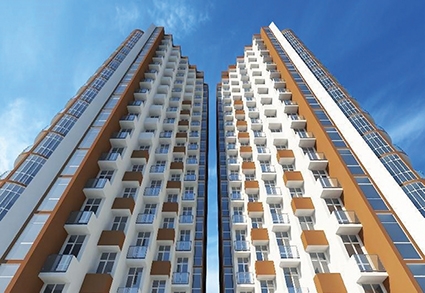The Unbearable Lightness of Doing Business in Georgia
Georgian policymakers are proud of their country being #6 in the world in the Ease of Doing Business Index. It is, indeed, quite easy to do business in Georgia.
Starting a new business takes literally only a couple of hours (on paper, that is), ranking Georgia #2 in this category globally.
And all it takes to register a new property is one action and one day (Georgia is #4).
Georgia is only #16 in paying taxes, but businesses should not be complaining. Georgian tax rates are rather low by international standards: 20% on personal income, 15% on distributed profits, and 18% VAT. Furthermore, inspired by Estonia, Georgia makes paying taxes easier by levying income tax on distributed profits (dividends) rather than on taxable profit.
Though not captured by the Ease Doing Business methodology, Georgian companies have yet another advantage over their international peers: they don’t have to give a s*** about their clients and customers, whether it’s other businesses or unfortunate Georgian citizens. And judging by the experience of Ana and Davit, Georgia might be #1 in this aspect of the business environment.
ANA, DAVIT AND THEIR NEW BATUMI APARTMENT
In the fall of 2018, Ana and Davit bought a beautiful apartment on the 18th floor of Batumi’s Pushkin Twin Towers, as the project was advertised by the developer, DARBUILDING.ge. Large panoramic windows promised a great view of the city and the mountains. Transforming the concrete shell (“black carcass”) into a cozy home, required a lot of work, but this was a challenge well worth taking up.
All was good (for a couple of months) until it wasn’t. Davit quickly realized that the building’s external walls were not properly insulated. The developer, DARBUILDING, promised to “look into the issue”. But while they kept looking – without doing anything – walls were getting wet, preventing Davit from starting the renovation works.
“In the end, I decided to take a month off, and fix the wall by myself. I could not afford waiting any longer,” Davit tells me.
But tragedy struck on the first day of Davit’s vacation on January 16, 2019: a strong wind gust at 90 km/h blew their large (9m2) panoramic windows out of their frame. In their apartment and that of their neighbors on the 17th floor. The windows fell down, crushing a BMW and a small cabin beneath. A similar incident had happened three days earlier, when a window fell out of the 14th floor of the building. Thank God, nobody died or was hurt in both incidents.
Davit, his neighbors and the owners of the damaged property spent the rest of the day in the local police station, reporting the incident. The police never bothered to inspect the scene of the crime and merely transferred the case to an investigator in the central police office of Batumi.
IS THERE ANYBODY OUT THERE (TO TAKE RESPONSIBILITY)?
The next morning, Davit and Ana called DARBUILDING. They were certain the company would quickly fix the problem. After all, it operates its own plastic window factory. But, they were bitterly disappointed.
“The building was commissioned by the Batumi City Hall,” they were told by the company’s representative, “they are now responsible.”
A representative of Batumi’s Construction Supervision Department, where Davit found himself a few hours later, briefed him on the legal situation: “The house has been commissioned, but, according to the Georgian law, the developer remains responsible for any damages, visible or invisible, for a term of 10 years.” He even agreed to call and admonish DARBUILDING’s lawyer: “come on, you know it is your responsibility, not ours!” (the two were friends – as, in fact, everybody seems to be friends in Batumi’s bustling construction sector).
The lawyer promised to talk to Amiran Darchidze, DARBUILDING’S owner and director: “Amiran may agree to give you a new window but you would have to install it yourself.”
But when the lawyer called them back the next day, it was to inform Davit that Amiran Darchidze was not in the mood to do any “favors” for his customers.
Davit was not in the mood to give up. He typed up his claims and went to see Mr. Darchidze in person. “Get out of my office,” he was told, “see you in court!”
Within the next few days, Davit sent his claims – by registered mail or hand-delivered – to:
• DARBUILDING LLC;
• The Georgian prosecution office in Batumi (with a request to investigate the building’s safety);
• Batumi City Hall (with a request to meet Batumi mayor, Lasha Komakhidze);
• The Georgian Ministry of Economic and Sustainable Development in Tbilisi.
He never heard anything back from DARBUILDING.
The prosecution office agreed to open the case, but then closed it, without ever visiting Davit’s apartment and inspecting (either of) Pushkin Twin Towers.
The letter to the Georgian Ministry of Economic and Sustainable Development was forwarded to the Ministry of Economic Development of Adjara Autonomous Region, and from there to Batumi City Hall. Batumi City Hall’s Construction Supervision Department has not officially responded to this very day.
On January 30, 2019, an investigative journalism piece by Tsago Kakhaberidze, describing the Pushkin Twin Towers drama, appeared in Batumelebi. Two days later, on February 2, Davit was invited to meet Batumi Mayor Lasha Komakhidze. Komakhidze listened and asked his staff to talk to DARBUILDING and demanded that they take responsibility.
On Feb 15, Davit called Irakli Mokia from Batumi’s Construction Supervision Department, who was supposed to be informed of his case. Like others before him, Mokia promised to help, but never returned the call or took any action...
Georgia’s bureaucracy turned out to be a tough nut to crack for Davit and Ana. After three months of trying, they had no choice but give up. In the meantime, DARBUILDING continues to have its buildings commissioned by a business-friendly city hall. What is good for the likes of Amiran Darchidze is presumed to be good for Batumi. Nobody seems to care about – and take responsibility for – the wellbeing and safety of Georgian consumers and citizens.
AN EFFICIENT COURT IS THE BEST REGULATOR
“If you could not get the government regulators to help you, why didn’t you take your case to court?” I ask Davit. “Don’t you believe in your chances of winning?”
“I thought of it,” says Davit, “but decided this was not worth our time and money. First, we would have to pay at least 525 GEL for an expert engineer’s opinion. Then, we would need to hire an experienced lawyer. Ideally not from Batumi, but from a good office in Tbilisi. The litigation process would take about 2 years, with minimal chances of winning in the first instance, in the local Batumi court. We would most likely win in an appeals court in Kutaisi, but this would take another year. In the best-case scenario, we would be able to cover our costs for the window, legal services and engineering expertise. But 3 years is also sufficient time for the company to declare bankruptcy… “
I had no further questions for Dato. But I do have many questions (and a few suggestions) for Georgian policymakers.
Kakha Bendukidze, the ideologue of Georgia’s libertarian reforms of 2004-2006, hated government regulators and inspectors. “The court is the best regulator,” he told me once.
But, if courts take three or four years to settle a simple civil case, such as that of Davit and Ana, they can hardly perform the regulator’s role. Slow and dysfunctional courts cannot deter unlawful or irresponsible behavior on the part of fellow citizens and companies. They are equally bad for the “ease of doing business” (especially for small companies), and the wellbeing of Georgian consumers.
THE WAY FORWARD
How can Georgia unlock the bottlenecks in its justice administration system? One easy solution would be to establish “small-claims courts” to handle civil cases involving small amounts of money. Such courts exist in Britain, the US, many former British colonies, such as Singapore and Hong Kong, and Israel. While the institutional detail may differ, the general purpose served by such courts is to offer a quick, easily accessible, and inexpensive legal recourse for rank-and-file citizens.
In Israel, to take one example, such courts can handle claims up to $10,000. Individuals may sue other individuals or corporations. If needed, they can use legal assistance, but are not allowed to be represented by professional lawyers. To get a hearing, one has to wait about 3 months, but cases are typically decided on the spot (or within a maximum of seven days), using a simplified, informal procedure. Importantly, decisions by small-case courts are executed just like any other court’s decision.
Georgia is #8 in the world in “enforcing contracts” (13/18)
|
Indicator |
Range |
NOR |
GEO |
SWE |
FRA |
ARM |
GER |
RUS |
FIN |
ICE |
AZE |
|
Overall quality of judicial processes |
(0-18) |
14.0 |
13.0 |
12.0 |
12.0 |
12.0 |
10.5 |
9.5 |
8.5 |
7.5 |
6.5 |
|
Court structure and proceedings |
(-1-5) |
3.5 |
3.5 |
3.5 |
4.5 |
3.5 |
4.5 |
3.0 |
1.5 |
1.5 |
3.0 |
|
Case management |
(0-6) |
4.0 |
4.5 |
4.0 |
3.0 |
3.5 |
1.5 |
4.0 |
2.0 |
2.0 |
2.0 |
|
Court automation |
(0-4) |
4.0 |
2.5 |
2.0 |
2.0 |
2.0 |
1.5 |
0.0 |
2.5 |
2.0 |
1.5 |
|
Alternative dispute resolution |
(0-3) |
2.5 |
2.5 |
2.5 |
2.5 |
3.0 |
3.0 |
2.5 |
2.5 |
2.0 |
0.0 |
* * *
Rather astonishingly, the World Bank’s ‘Doing Business’ report ranks Georgia at the top of the world (#8, to be precise) on contract enforcement. Ahead of its neighbors. Ahead of OECD high income country average. Ahead of Sweden, France and Germany. Way ahead of Finland and Iceland.
But based on what we know about Georgia’s justice system, something is fundamentally wrong with not only the Georgian business environment but also the (flattering) way in which the World Bank assesses it. Time has come to fix (or nix) the Doing Business Index and the reality it purports to describe.
About author:
Eric Livny is Founder and President at Tbilinomics Policy Advisors and Chair of Economic Policy Committee at the International Chamber of Commerce (ICC Georgia).
By Eric Livny
Photo: Batumi’s Pushkin Twin Towers. Prime location. Subprime construction quality and no accountability.











